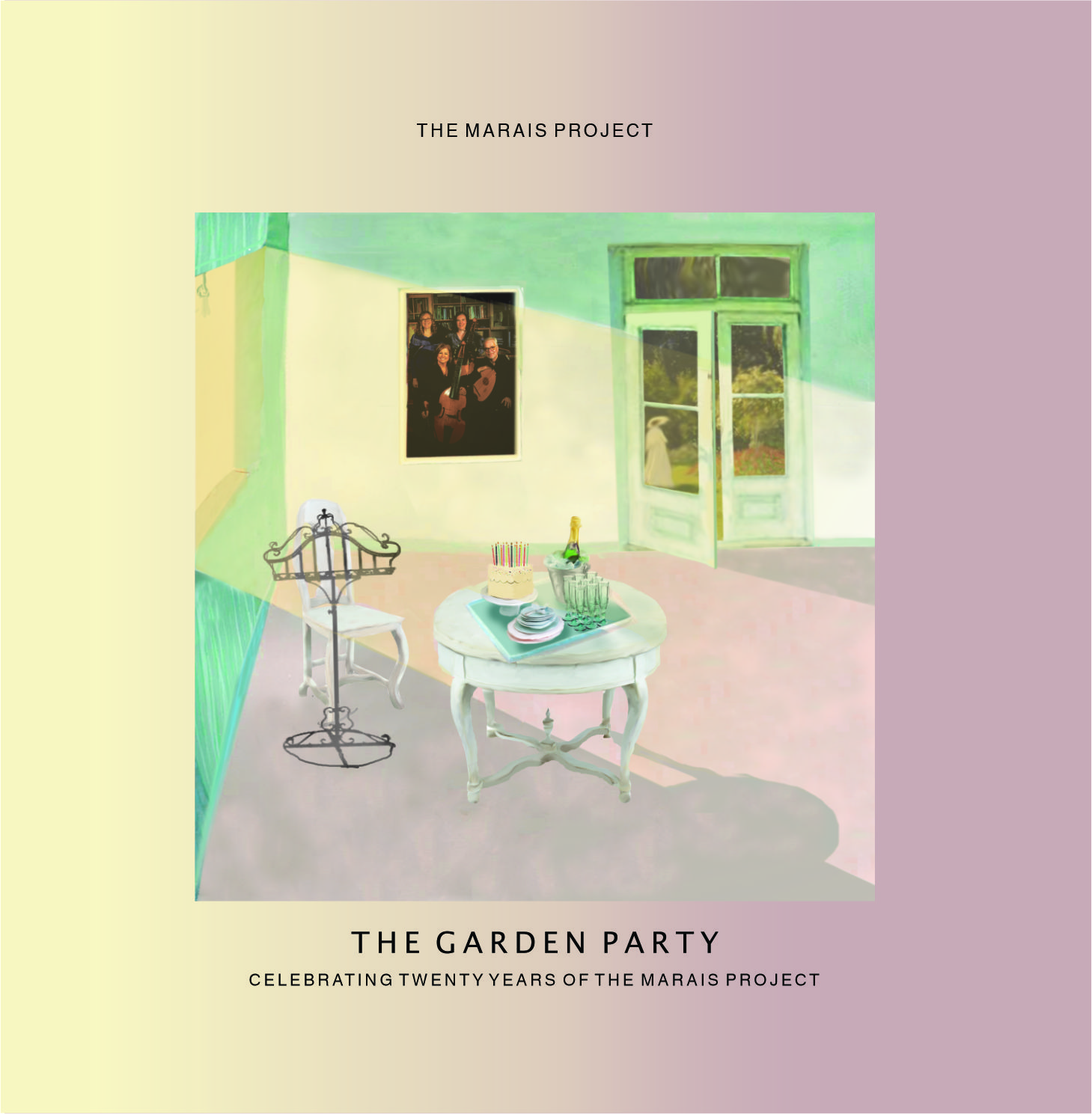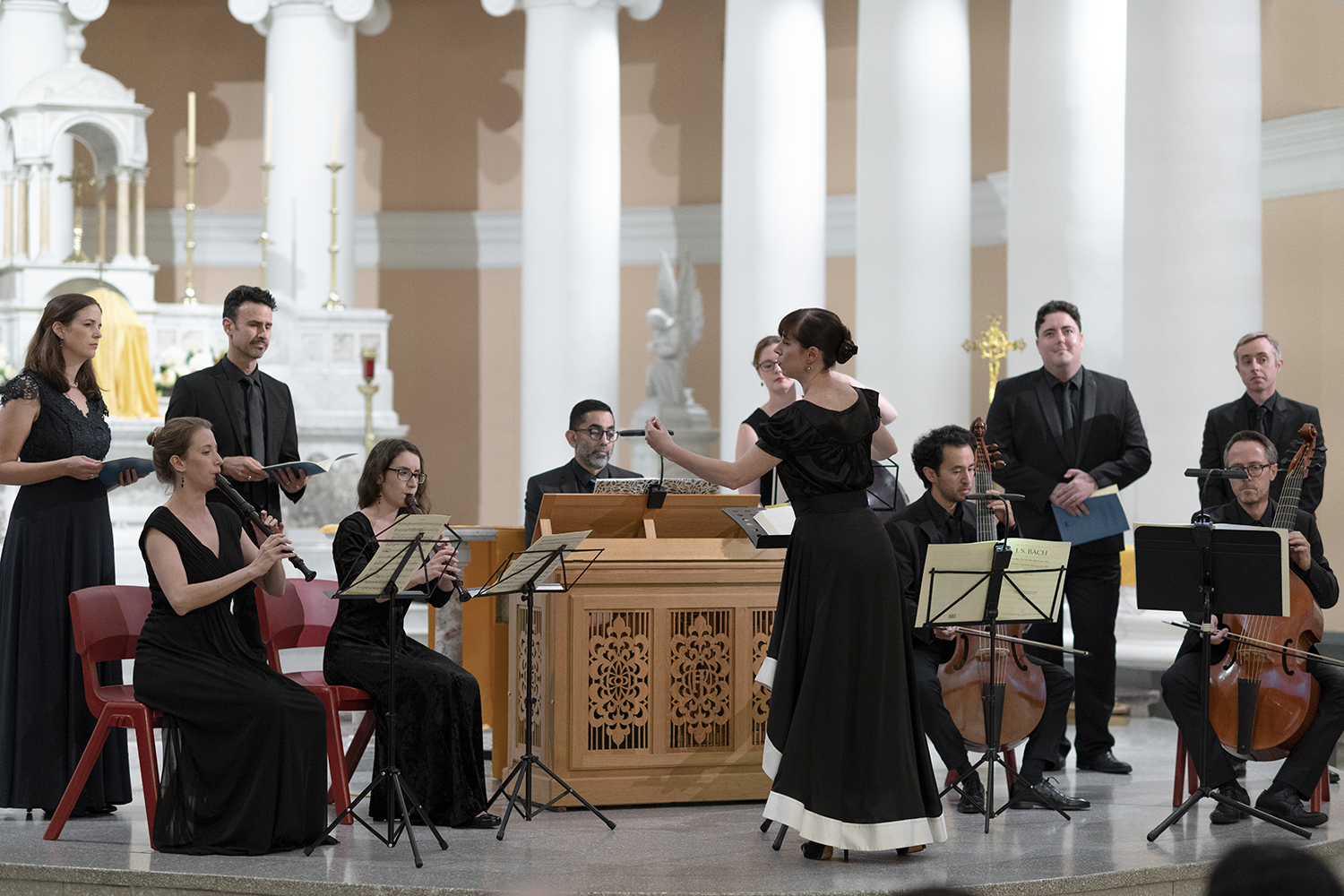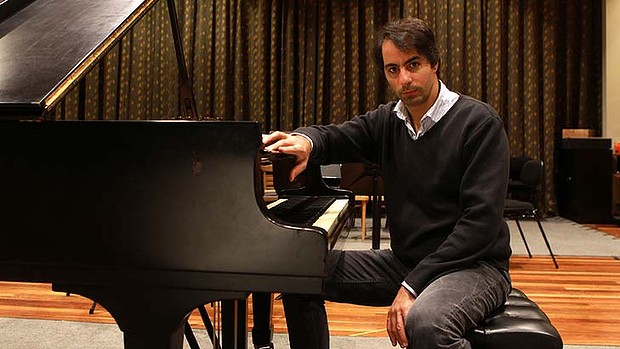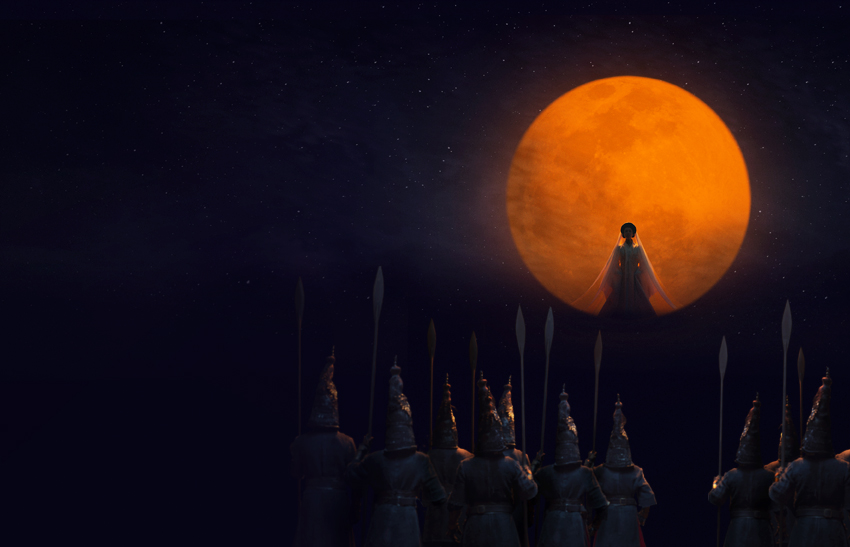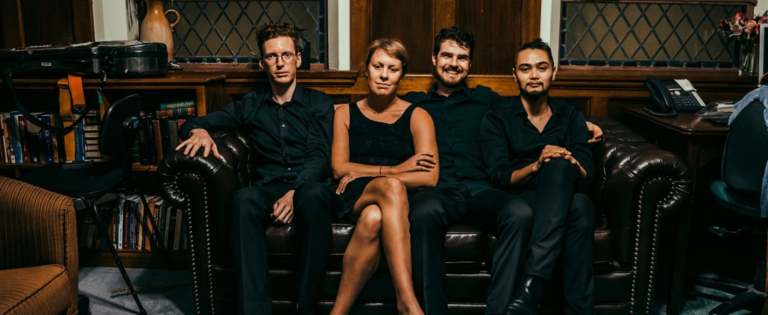Review: ‘Götterdämmerung’ Opera Australia
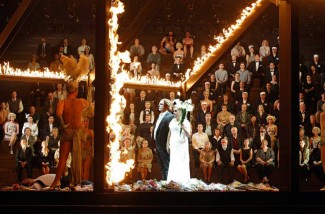
Opera Australia:Der Ring des Nibelungen: Götterdämmerung
Arts Centre Melbourne/25 November 2013
*****
The Third Day of Wagner’s music colossus concluded what has been the kind of festival he had planned: all four operas being performed in close succession by outstanding singers and a Wagner sized orchestra of excellent musicians in a production that illuminates his dramatic intentions. In addition, the controversial nature of Opera Australia’s production ensured that there would be plenty to discuss over a meal with fellow members of the audience during the extended intervals. It has been a community event.
As the Norns sewed away at the inverted backdrop of Valhalla, torn by the entrance of the giants in Das Rheingold, the audience could begin to weave together more threads of understanding of the story and the production itself. Although certain mysteries concerning both remained after the final curtain fell, a shift in perspective resulted in a realisation that the whole was a great deal larger than the sum of the parts.
Originally devised as the beginning of ‘The Ring Cycle’ the Norns fill us in on the details of the story and what is going on back in Valhalla. Elizabeth Campbell, Jacqueline Dark and Anke Höppner made a dramatically and vocally strong trio as a type of homespun sewing circle, appearing to relish a good old gossip about Wotan’s glory days and Valhalla’s imminent fall. Their reaction to the tangling and breaking of the thread/rope of Fate and Neil Armstrong’s symbolic depiction of that fall brought a chilling change of mood.
Instead of Wotan himself appearing in this opera, Waltraute also provides details of how badly things are going back at the great hall of the gods. Her attempts to persuade Brünnhilde to give the ring back to the Rhine maidens have the potential to be one of the most moving scenes in the opera. Feminists might recoil at the sight of Brünnhilde being confined to a rock with only her horse, her memories and, of course, the ring to console her.
Susan Bullock’s emotional range as a singing actress is enormous. As in the final scene of Siegfried, her interchange with Stefan Vinke’s passionate hero at the conclusion of the Prologue was multi-dimensional. What Waltraute calls madness, Brünnhilde experiences as transcendental passion and that is exactly what Bullock conveyed, in addition to showing the cost this entails. Her reaction to descriptions of her father’s loving thoughts of her was moving indeed. Deborah Humble was all urgent Valkyrie, her dramatic dark tones painting a vivid picture of Wotan’s dejection and the necessity of relinquishing what had become a symbol of Siegfried’s love.
Bullock showed that Brünnhilde’s inner Valkyrie was still very much alive in her furious reactions to the deceptions of Siegfried and the Gibichungs. The compressed fury in her body language as Gunther dragged her towards the assembled wedding guests, and the fierce physical assault on her surroundings were accompanied by a formidable display of vocal power and incisive articulation. In Götterdämmerung the role of Brünnhilde requires enormous concentration and vocal stamina; Bullock gave a remarkably sustained display of both as well as providing moments of considerable beauty.
Stefan Vinke more than met the vocal demands of his heldentenor role. In fact, he seemed to grow stronger as the evening progressed. His rounded, ringing voice and energetic youthful energy enlivened his Siegfried. By playfully resisting the charms of the enticing Rhine maidens, including Lorina Gore’s gleaming soprano, he reinforced his credentials as an essentially honourable and engaging hero. Although a lack of full awareness still dominated Siegfried’s interactions until the very end of the opera, Vinke managed to add further dimensions to his role, particularly when he was disguised as Gunther. His hesitations when on the verge of regaining his memory rang true and his death scene was absolutely heart-wrenching.
Dynamic, sometimes elaborate, sets made for some entertaining staging. Gunther and Hagen, the half brothers of the ruling Gibichung family, were presented as navy captain and commander, while their sister, Gutrune, was a Barbie figure intent on looking good. Surrounded by the trappings of wealth, Gunther and Gutrune labored away on their exercise equipment while Hagen lured them into his deceitful schemes. The wedding scene featured a huge marquee furnished with complete table-settings plus wedding cake. It was miraculous how well the large male chorus and others managed to enter and exit so smoothly as the stage revolved.
Götterdämmerung is the only one of the four operas that requires a chorus and the OA gentlemen made the most of the opportunity with some fine singing. A well-balanced ensemble was equally impressive in the full-throated rousing passages as in the softer ones. Although a little under-powered in the lower parts of the voice against a heavier orchestra, Sharon Prero and Barry Ryan gave solid performances as Gunther and Gutrune. Dripping with ‘diamonds’ and dressed in a low-cut, tightly fitting fishtail wedding gown, Prero’s glamorous appearance was perfect for the portrayal of Gutrune as a blonde, tanned trophy-bride in Act II. The four very pink bridesmaids completed a picture of tasteless excess.
Along with Alberich, sung and acted with unnerving menace by Warwick Fyfe, his son Hagen provides the element of evil. Daniel Sumegi made an ideal Hagen, his distinctive voice having just the right weight and timbre to suggest latent threat and a capacity for ruthless domination of others. The beginning of Act II, when Alberich pours his greedy hypnotic suggestions into his sleeping son’s ears, was made even more riveting by Damien Cooper’s highly effective lighting.
Avoiding the static without being unduly distracting, there were many fun elements in this production, such as a mass rowing scene during Siegfried’s Rhine Journey. Perhaps Armfield’s most telling and emotionally charged direction came at the end of the opera, when so many story and musical elements come together. It was not so much the unexpected pyrotechnics of Brünnhilde’s Immolation Scene, nor the noble manner in which she joined Siegfried after his incredibly moving ritualistic death scene that struck home; rather, it was his use of the augmented cast to highlight the centrality of humanity. As they faced the audience, they appeared to encourage us to join them in building a hopeful future where love triumphs over greed.
There have been so many productions of The Ring that it must be increasingly difficult to find new ways of presenting it. Neil Armfield’s creative team may have reworked some ideas used by other directors, but they have put their own unique stamp on this one with a freshness and ingenuity that successfully fuses modern iconography with myth.
Opera Australia’s production will resonate in the minds of those who saw it for many years to come. The staging, the acting and most of all the singing and playing have transported us into a magical world of heroes and heroines, gods and demigods, mystical creatures and merciless villains, while exploring the complexities of human nature. Pietari Inkinen has been untiring in his efforts to draw out the very best from musicians who have given exceptional performances of Wagner’s glorious music.
As the singers, including most of those who had appeared only in the earlier Ring operas, lined up on stage to take their final curtain call alongside dancers, members of the orchestra and the production team, and the band of enthusiastic volunteers, it was a time of celebration. The standing ovation that greeted every single performance of this ambitious project was further vindication of the decision to undertake such an ambitious project and affirmed that Opera Australia had well and truly come of age.
Melbourne Ring Orchestra/ Conductor: Pietari Inkinen
Director: Neil Armfield/ Set Designer: Robert Cousins/ Costume Designer: Alice Babidge/ Lighting Designer: Damian Cooper
CAST in order of appearance
First Norn: Elizabeth Campbell/ Second Norn: Jacqueline Dark/ Third Norn: Anke Höppner/ Brünnhilde: Susan Bullock/
Siegfried: Stefan Vinke/ Gunther: Barry Ryan/ Hagen: Daniel Sumegi/ Gutrune: Sharon Prero/ Waltraute: Deborah Humble/ Alberich: Warwick Fyfe/ Wellgunde: Jane Ede/ Flosshilde: Dominica Matthews
Heather Leviston for SoundsLikeSydney©
Heather Leviston has devoted much of her life to listening to classical music and attending concerts. An addiction to vocal and string music has led her to undertake extensive training in singing and perform as a member of the Victoria State Opera chorus and as a soloist with various musical organisations. As a founding academic teacher of the Victorian College of the Arts Secondary School, she has had the privilege of witnessing the progress of many talented students, keenly following their careers by attending their performances both in Australia and overseas. As a reviewer, recently for artsHub, she has been keen to bring attention to the fine music-making that is on offer in Australia, especially in the form of live performance.


